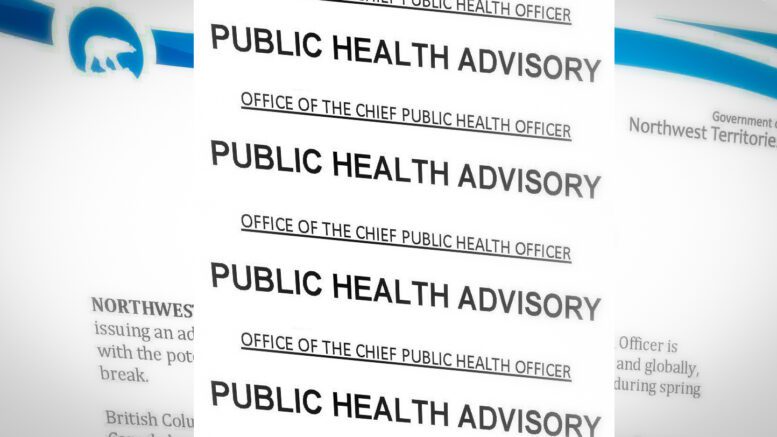The Chief Public Health Officer (CPHO) warns that measles has been detected in Canada and other countries and could be brought back to the NWT by spring-break travellers.
Measles is one of the most transmissible and highly infectious diseases.
It is spread easily through the air when an infected person coughs or sneezes.
Most people recover in two to three weeks, but measles can have serious complications especially for infants, pregnant women, and those with weakened immune systems.
British Columbia, Saskatchewan, Ontario, and Quebec have confirmed measles cases.
The CPHO stated: “There are signs of community transmission which is of immediate concern as more people are travelling out of NWT during March break.”
You can become infected when you breathe in air or touch a surface contaminated with the virus.
The measles virus can remain in the air for up to two hours once an infected person leaves the area.
You can become infectious and start spreading the disease before you know you are sick.
Measles signs and symptoms appear on average 10 to 14 days after exposure to the virus.
Signs and symptoms of measles typically include: Fever, dry cough and runny nose.
There’s also that skin rash made up of large, flat blotches, that starts on the face and spreads to the rest of the body lasting up to a week.
There is no cure for measles, but it is a vaccine preventable disease.
The best way to protect against measles is to get vaccinated.
For more information, please see your health care provider.





